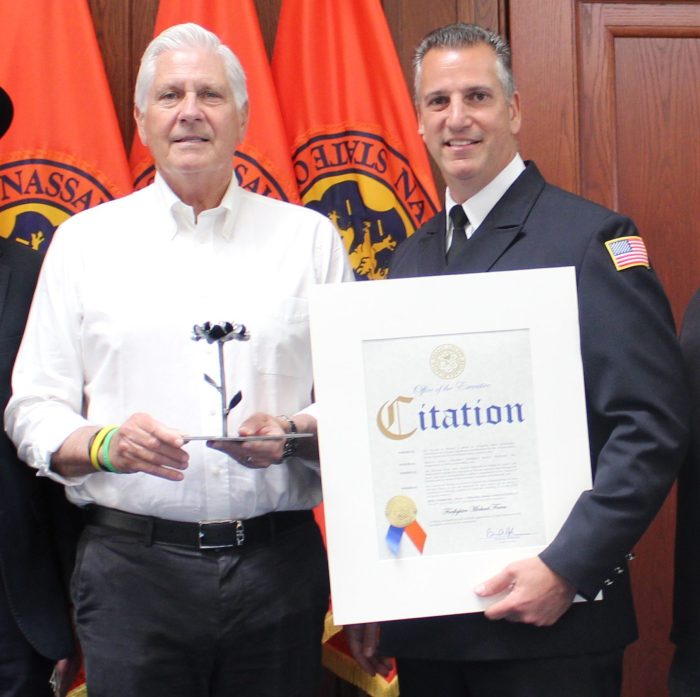The Civil War: An American Anniversary
It was an extravaganza of bloodshed; so potent and sweeping in its consequences; so deadly in the colliding of human forces that it has been thrust to the forefront of the historical stage as America’s grand opera. Yet so little is heard or said about the Sesquicentennial of the American Civil War. Perhaps, this is because so much has been written that we have become numb to how our country had once so bloodily and tragically turned upon itself.
In a young country of 31 million, the war cost 622,000 lives. Yet there are scores of high school students who do not know what century it was fought in or even why it was fought. This is a pity; for an event so gut-wrenchingly traumatic and central to understanding who we are as a people can never grow stale in the telling or exhaust the lessons it teaches. While each generation sees this national catastrophe through the prism of its own experience, different perspectives can only enrich our understanding of the terrible events that unfolded 150 years ago and still powerfully impact the politics and culture of today.
The road to disunion and civil war was a long and winding one, but it drew its first breath well before the inhabitants of America ever conceived itself as an independent nation. It didn’t seem particularly momentous that day in 1619, when a Dutch ship brought fewer than 20 African blacks to be sold at Jamestown, VA, America’s first successful colony. The slave trade had been around for centuries without causing an upheaval in our civilization; nevertheless, the momentum of revolutionary ideas about human liberty cohabiting with the institution of slavery on the same continent placed two irrepressible forces on a high-speed collision course.
Whether slavery produced racial prejudice in America is a subject querulously debated among scholars. Whatever the facts surrounding its parturition, slavery took hold first with grudging slowness but then with a tenacious finality that burrowed itself deep into the local statutes of the Southern plantation system. While slavery existed in every Northern colony, it was the plantations of the South where it became inveterately entrenched.
It was only after colonists here fought and died for the lofty ideals of the American Revolution that the contradictions of slavery unsettlingly manifested themselves in the new Republic that boldly claimed certain truths as being “self-evident.” In response, Congress implicitly sought to put the nefarious practice on the road toward extinction by the Northwest Ordinance that designated the area north of the Ohio River, a tract of land to be divided into five future states, as being free from slavery and by explicitly incorporating in the Constitution a ban on the importation of slaves by the year 1808, 20 years hence. With Southern states, especially Virginia, manumitting slaves by the thousands, it appeared that the institution would indeed die a natural, bloodless death.
The vicissitudes of life, however, are such that what is hoped for is not always what is realized. It was Eli Whitney’s inventive mind, just four years after the ratification of the Constitution, that threw a wrench in the machinery of emancipation. Whitney’s cotton gin successfully separated the fibers of short-staple cotton from the seed and made mass production of the crop a practical reality. The invention became a catalyst for widespread cotton cultivation, breathing new life into the lungs of plantation slavery. With Northern markets and especially British textile industries desperate for the soft, white fibrous substance, the new technology made cotton a cash crop exploding any doubts about slavery being economically anachronistic.
Preserving plantation slavery became, at least for the Southern aristocracy, economically lucrative. In turn, rationalization offered not a cent of tribute to morality, but obsequiously paid homage to self-interest. The South would no longer view, as it had in the past, human bondage as a necessary evil but rather a positive good. While the North increasingly saw slavery as a crime against humanity, it was the new and radical philosophy of slaveholders and not the tariff, the railroad or regional differences, which became the cardinal reason and proximate cause for an unprecedented national rupture.
As time passed, attitudes increasingly hardened between the North and the South. An uneasy truce prevailed between the sections, punctuated by episodic crisis involving the creation of new states in the vast West. With the Louisiana Purchase and Mexican cession, the United States annexed nearly 2 million square miles of territory that would one day, in the great West, encompass some 15 states. But would these territories become free states or slave states? With the climate not conducive to plantations, the South was compelled to play defense or risk becoming politically isolated. With all these territories in play the moral stakes, from each perspective, were immeasurable as the ominous shadow of irrevocable dissolution hung over the Union.
With the emergence of the Republican Party in 1854, and their platform of slavery being a moral and social evil, things had begun to unravel. Moderate influences collapsed and radicals seized the initiative. Alarmed at the country’s choler, Republicans like Lincoln would reluctantly accept slavery where it existed but not an inch more. This became problematic when many Southerners brazenly brought their slaves into Western territories even though its climate was unsuitable to grow either cotton or tobacco. No matter — the important thing was to create a political foundation to protect their interests when these territories became states.
As civil discourse over the issues frayed and then imploded, extremists took matters in their own hands. In 1859, John Brown, a brooding abolitionist, instigated the one thing the South feared most, a slave insurrection. Defeated at Harper Ferry, Virginia, he and his followers were hung for treason. With his death church bells rang in Northern cities in honor of the martyred Brown and Ralph Waldo Emerson exulted that Brown’s execution would make “the gallows as glorious as the cross.”
The South was as enraged by the North’s panegyrics for Brown as the North was a year earlier when Chief Justice Roger Taney in the Dred Scott case essentially proclaimed that laws prohibiting slavery were unconstitutional. By 1860, the Democratic Party had splintered over multifarious differences from within, allowing Abraham Lincoln to be elected with just 39.8 percent of the vote. Despite his relatively moderate views, the die was cast and the South saw its choice as either secession or surrender.
Before Lincoln was inaugurated seven states had seceded, four others would later follow establishing a new nation, or so they claimed, calling themselves the Confederate States of America. The Constitution was silent on secession; but Lincoln, a cunning, iron-willed, melancholic genius intellectually and mystically wedded to the idea of perpetual Union, saw the South’s action as the death knell for democracy and Republican government. And the war came.
Many thought the slugfest between North and South would result in no more than a bloody nose; instead the divided nation hemorrhaged across four sanguinary Aprils. Ironies abounded. Lincoln’s in-laws were slaveholders while Robert E. Lee the courtly, quintessential Southern gentleman and supreme commander of the rebel army, hated slavery. Yet he could not raise his sword against his native state, the slaveholding Virginia, which he called, in the manner of Thomas Jefferson, my country. It was a sentiment he shared with hundreds of thousands of Southerners, most of them poor, believing their state, right or wrong, was more sacred than Federal Union.
It was an idea that persisted, in some degree, even in the North. When General Meade finally won a major victory by defeating Lee after he invaded Pennsylvania, he wrote to Lincoln that we “have driven the enemy from our land.” Lincoln bristled and wrote back: My Dear General Meade … What exactly do you mean you drove the enemy from our land? … It is all our land …. Your objective is not to drive the enemy from our land, it is to destroy the rebel army!
Two years before this victory at Gettysburg, it had been hell for the Union forces. Lee’s tactical brilliance, characterized by brio and panache, beguiled the Union armies who vastly outnumbered him. Both sides suffered enormously. The only thing on earth more terrible than a battle won, said Wellington, is a battle lost. This truism became particularly harrowing when Lincoln found his General in Ulysses S. Grant, a fighter to the core, who understood, as they said, the “terrible arithmetic.” The North with far greater manpower than the South could win the war by a determined attrition backed with a little strategy.
In the Battle of the Wilderness, Grant’s casualties totaled more than Lee’s entire army while William Tecumseh Sherman (I will make the South so sick of war they won’t rebel for another thousand years) swept across Georgia like an avenging angel of the Apocalypse, burning Atlanta and killing virtually everything that crawled. It was said that if a crow flew over Sherman’s line of march, he better bring his lunch with him. In the face of this carnage a tortured Lincoln, through transcendent prose, struggled for a higher meaning by making this a war not only to preserve the Union, but to free 4 million Americans from the bowels of slavery. It was a revolutionary objective, and years after the South’s surrender at Appomattox, Margaret Mitchell perhaps said more than she knew when she called her novel, Gone with the Wind, for a whole culture, that of Old Dixie, was swept away by the winds of war. In its place would be a “new birth of freedom,” and America would become a vastly different and better country than it was before. One could say about this American ordeal what the poet Yeats said in another time, and in another place: A terrible beauty was born.
It’s a saga that cannot be too oft told because our collective national memory is as important as our personal one. Our lives are threaded between the porous borders that separate the past from the present. It is why we must return to the ghosts of battlefields past, to peer beyond the immediate neighborhood. The thunder and brimstone of history saves us from disillusion; it is a veritable reliquary of humanity’s burnished trophies and skeletons in spidery cupboards. Ignorance of our heritage makes us strangers in a strange land; a people without a country; bereft of cause and creed. We must grasp the unrelenting narrative of our past, insofar as human experience is recoverable, and through the pale light of history make our adjustments, and forge a path through the shades of an unseen, but beckoning future.




























